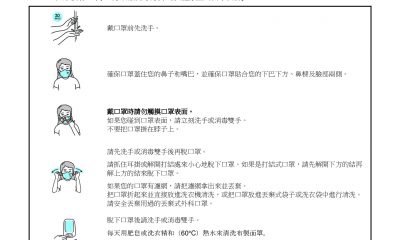World News
Khaled El-Enany Elected As UNESCO Director-General
World News
Russia Successfully Tests Nuclear-Powered Cruise Missile
World News
U.S. And China Reach Preliminary Trade Framework
World News
Anthony Albanese Meets Trump to Discuss Minerals, Defense, and Trade
-

 COVID-19 Around the World4 years ago
COVID-19 Around the World4 years agoFraudulent ivermectin studies open up new battleground
-

 Cuisine Explorer5 years ago
Cuisine Explorer5 years agoCantonese Mango Sago
-

 Tagalog5 years ago
Tagalog5 years agoFILIPINO: Kung nakakaranas ka ng mga sumusunod na sintomas, mangyaring subukan.
-

 Uncategorized5 years ago
Uncategorized5 years ago如果您出現以下症狀,請接受檢測。
-

 Cantonese - Traditional Chinese5 years ago
Cantonese - Traditional Chinese5 years ago保护您自己和家人 – 咳嗽和打喷嚏时请捂住
-

 Uncategorized5 years ago
Uncategorized5 years agoCOVID-19 檢驗快速 安全又簡單
-
Uncategorized5 years ago
在最近的 COVID-19 應對行動中, 維多利亞州並非孤單
-

 Uncategorized5 years ago
Uncategorized5 years agoHow to wear a face mask 怎麼戴口罩












